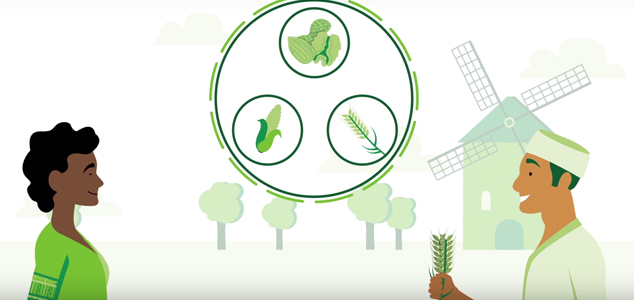


For many years, people lived by the motto: the bigger the better. Shopping the latest trends equaled with having a good life. More and more today the meaning of the good life is changing, we as consumers want to know the impact of goods we purchase or order on our planet and on us, the people. The consciousness we as consumer habit will make a difference. And it is growing every day.
With launch of the UN Sustainable Development Goals (SDGs) in 2015 more focus is pointed to achieve a better life for everyone. BASF is one of those companies who actively contribute to those goals. We drive sustainable innovations to offer solutions that help to reach the SDGs and we support the well-being of the people by many different projects all over the world. For example, we started a food fortification program to tackle malnutrition in Africa to ensure that people have better access to healthy food. In another project in Chile we offer young unemployed men vocational training on automotive repainting to enhances their employment opportunities in body shops. With those projects, we contribute to improve the quality of the people’s life today and in the long run.
In 2050, nearly ten billion people will live on earth. While the world’s population and its demands will keep growing, the planet’s resources are finite. Population growth is associated with huge global challenges. Challenges, which will also offer opportunities for businesses to contribute and grow, especially for the chemical industry. Through research and innovation, we support our customers in many industries in meeting the todays and future societal challenges.
I know, many companies are committed to contribute to redefining, redesigning and delivering the good life. In order to do so, they need to be equipped with a variety of important tools to successful complete their journey. One of those cornerstones is assessing the impact of business and goods on society at large. Therefore, we created BASF’s Value-to-Society. The decision to develop a corporate-wide approach to measuring and valuing the ‘real’ value contribution of the company to society was driven by our strategy and our purpose: “We create chemistry for a sustainable future”. The Value-to-Society approach helps us to assess the impact of our business activities along the value chain. For BASF, as a global company, this has been a major undertaking, against the backdrop of our very complex value chain including 75,000 tier one suppliers, 358 sites and more than 60,000 product applications in various markets and industries. But the effort was worth it. It offers many opportunities, for example, calculating the impact to society of newly constructed production plants by looking, including different scenarios. Depending on the location, such an investment would create different impacts, for example by adding value through employment or contracted local construction services on local or regional level – and by this, helping the people having a good or at least a better life.
I am convinced that understanding the impact of our business on society, deriving informed decisions and continuously monitoring our progress is key for a company to contribute in creating a good life for our employees, our customers – and the society at large. In a few weeks, I’ll be speaking at this year’s SB’17 Copenhagen about BASF’s value contribution to society and the environment. I’m looking forward to an inspiring exchange with you the Sustainable Brands Community. Join me at SB’17 Copenhagen!.

Dirk Voeste
Vice President Sustainability
BASF
August 25, 2017